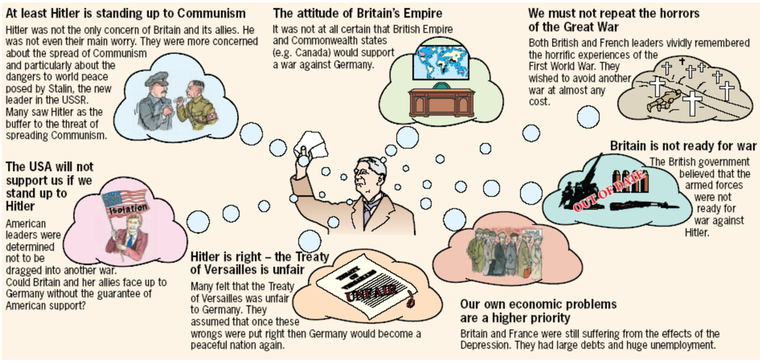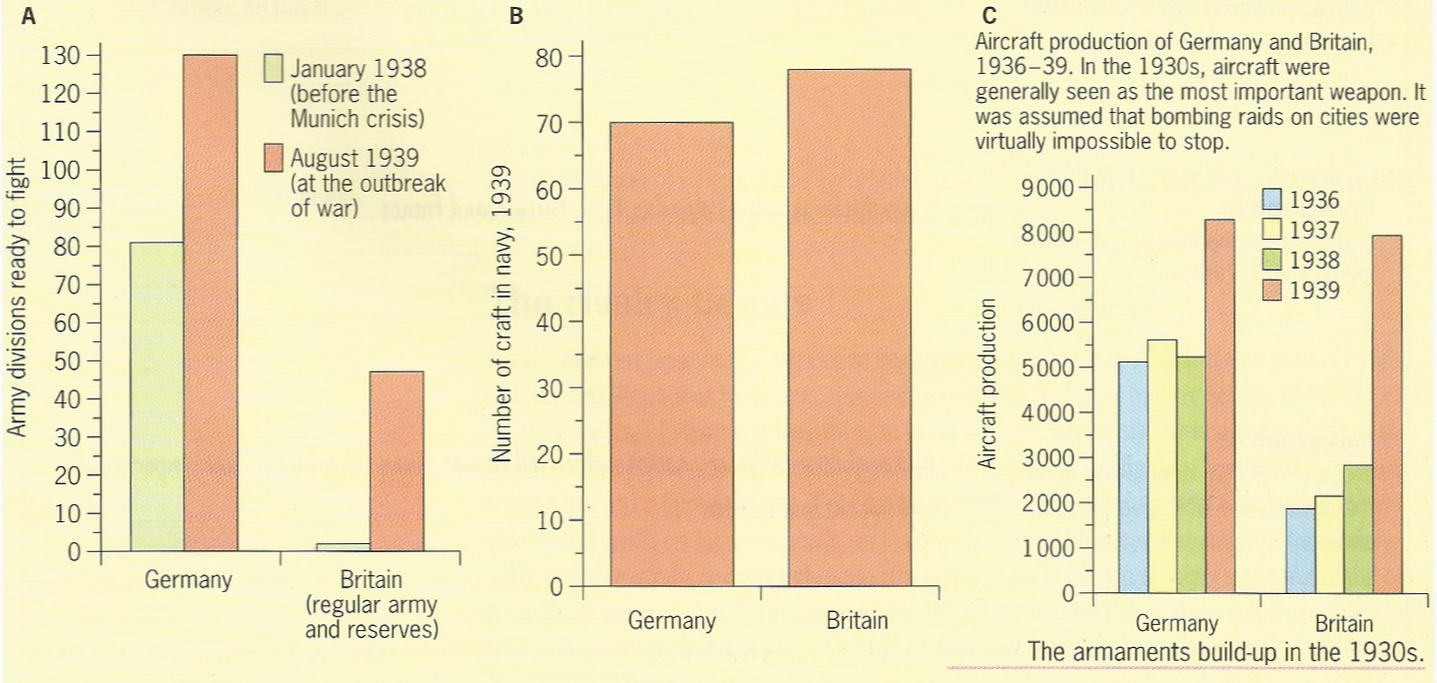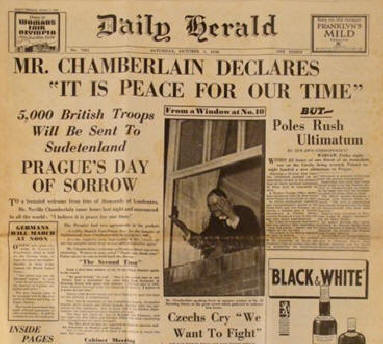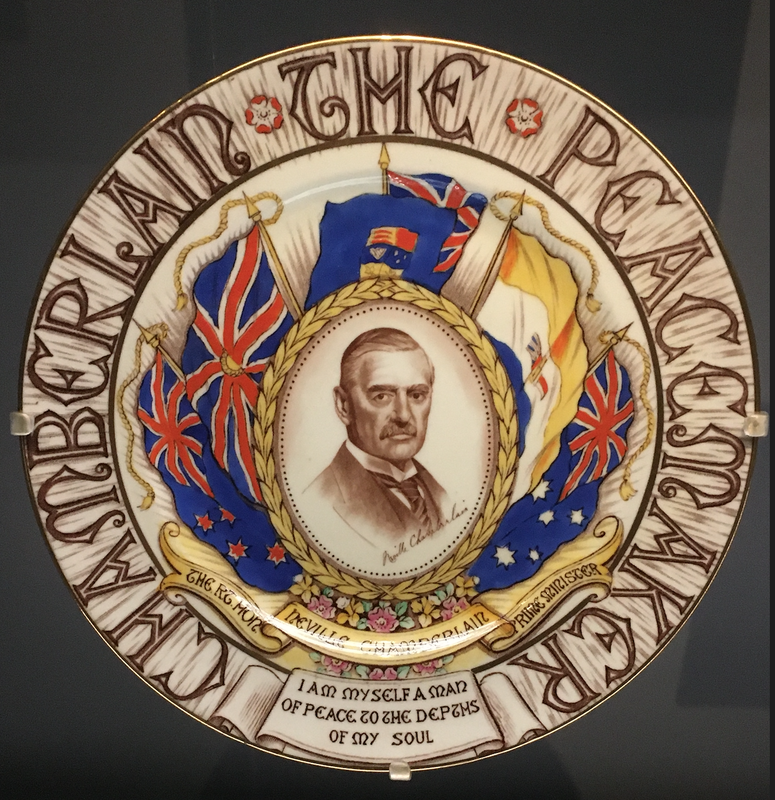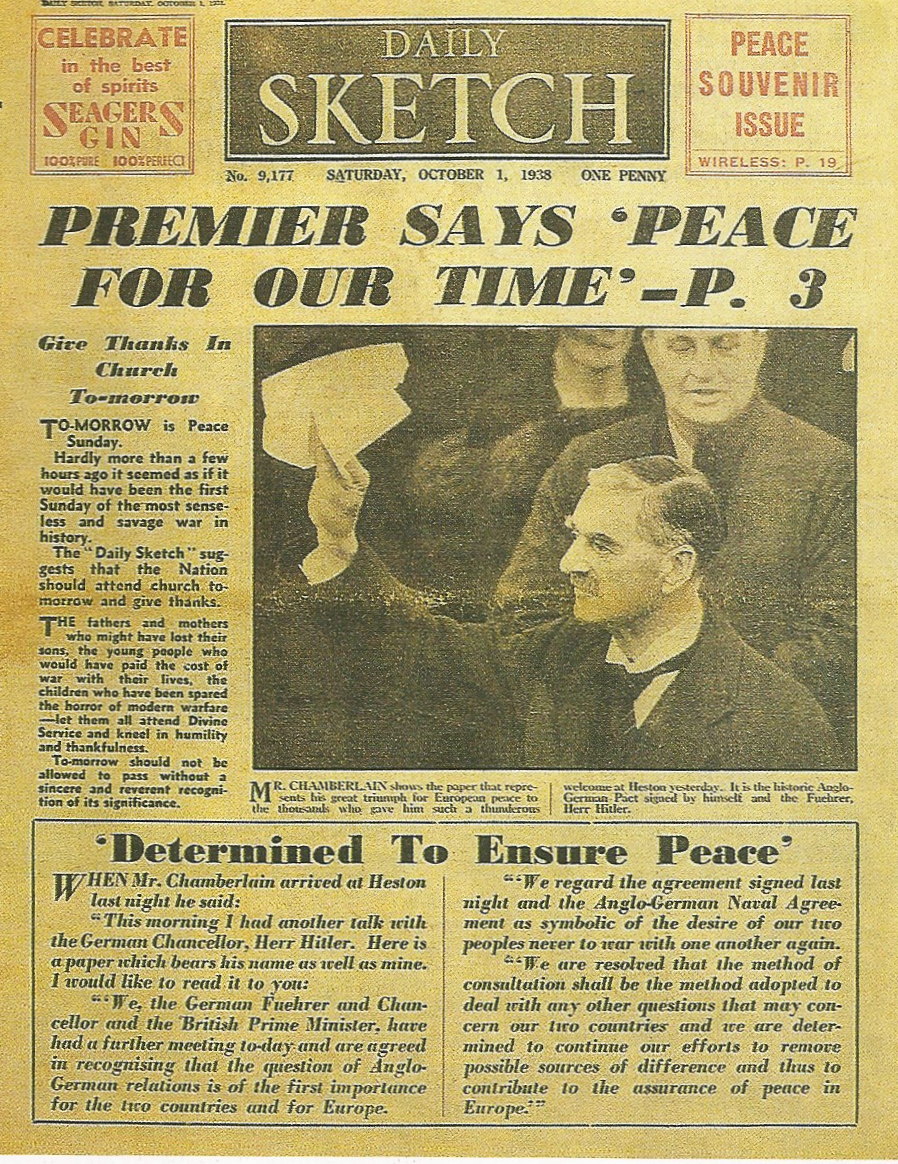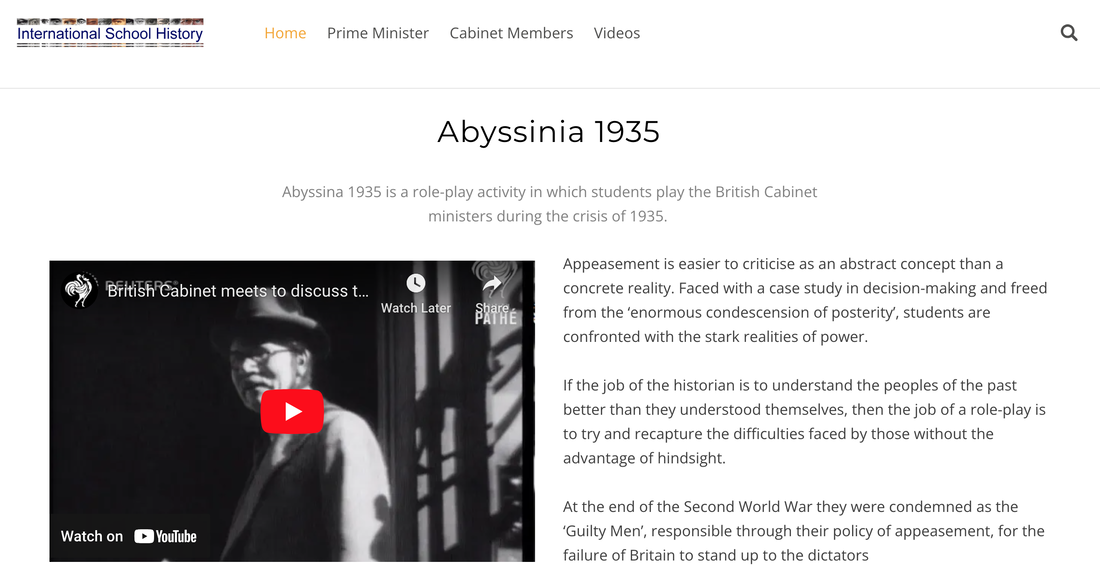Lesson 4 - Was appeasement the right policy?
The policy of appeasement was the policy of making concessions to the dictatorial powers in order to avoid conflict, as carried out by Anglo-French foreign policy during the 1930s.
|
Activity 1 - Why appeasement?
Consider the reasons given for appeasement in the diagram opposite. Identify examples of political reasons, economic reasons, cultural reasons and military reasons. Appeasement became indelibly associated with Conservative Prime Minister Neville Chamberlain. Appeasement was a controversial policy at the time. It is still controversial today. There are two main views: |
• It was the wrong policy because it encouraged Hitler. Chamberlain’s critics say that it simply encouraged Hitler’s gambling. They claim that if Britain or France had squared up to him at the start, he would have backed off. Peace would have been secured.
• It was the right policy because Britain was not ready for war. Chamberlain’s defenders say it was the only policy available to him. They say that to face up to Hitler Chamberlain had to be prepared to take Britain into a war. All the evidence available to Chamberlain told him that Britain was not ready. Public opinion was against it - his own civil service advisers had told him this. Important countries in the empire were against it. The USA was against it. And most importantly, Britain’s armed forces were not ready. They were badly equipped and had fallen far behind the Germans.
Activity 2 - Consider the following sources. To what extent do they support the view that appeasement at Munich bought the UK valuable time?
Activity 3 - Contrast these sources. How do they provide different contemporary views of the policy of appeasement?
Conclusion on the causes of WWII
|
|
|
Activity 5 - The Abyssinia 1935 Role Play.

